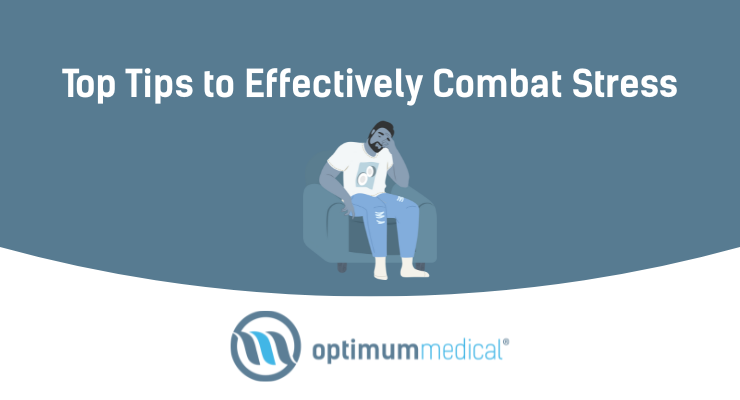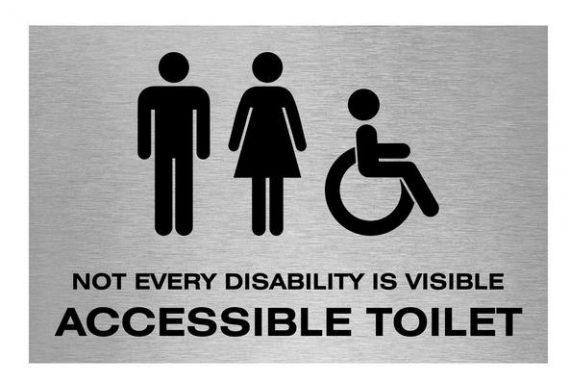Mental Health Awareness Week is upon us. One thing that can majorly impact your overall mental health is stress. Stress can affect your life in many different ways, and be triggered by multiple different factors. Here are some tips to help bring down your stress levels and reduce the potential negative impact that stress can have on your mental and physical health.
We’ve all been there; there’s a last-minute deadline approaching, something really expensive suddenly breaks and you didn’t budget for it, or your pet is suddenly feeling unwell. Stress plays a big part in our lives. When stress is short-lived, it actually keeps us interested and motivated. Sometimes, however, stress slowly creeps into our lives, turning into an overwhelming problem without us realising or noticing. And if that happens, it can quickly wreak havoc on our mental and physical health, our work, and our relationships. That’s why effectively managing your stress to reduce its negative impact is so important.
Break down your tasks
Looking at the whole list of tasks that need doing can quickly become overwhelming. So rather than trying to do everything at once, try focusing on one task at a time. This will make you feel more relaxed and improve the quality of your work because you’re giving it your full attention, without distractions. Don’t know where to start? Don’t worry. As with everything, learning how to break down tasks takes some practice. Our best tip: if you feel your thoughts drifting off while you’re working on a task, step away from it and re-focus. And only when you feel like your focus has been restored should you start working on it again.
Prioritisation is key
Your to-do list is endless, and you have one task or meeting after the next. This can quickly become overwhelming. First off, don’t forget that you’re only human! Some days you may be able to do the job of ten people, but on other days you might be struggling to do the job of one person. To avoid feeling stressed out by these slower days, it’s important that the tasks on your to-do list are prioritised properly. And if you still feel stressed after prioritising, consider reducing your commitments to only the ones that are absolutely crucial. This means saying ‘no’ if you have to say ‘no’. Many of us will notoriously say ‘yes’ because we don’t want to feel like we’re letting anyone down. But by saying ‘Yes’ all the time, we often let ourselves down by putting too much on our plates and over-committing ourselves.
Get going!
We’ve all been there; there’s a task on your to-do list that you really don’t want to do, so you keep putting it off.However, the more you procrastinate, the more stressed you feel by our workload, as you’re left playing catch-up on tasks that should’ve been done weeks ago. So, after you have prioritised your to-do list, complete your tasks according to their priorities. Even if there is one you really don’t want to do. You’ll see that once you’ve done it, it can feel like a weight off your chest.
Work on your time management
There aren’t many things in life that make us feel more stressed than being late to an important meeting. It’s not just the fact that we are late that’s causing us to be stressed, though. We’re also making everyone else late, ultimately putting everyone behind schedule which can quickly have a knock-on effect on the productivity of the meeting. To avoid this, good time management skills are important. Start by leaving 5-10 minutes earlier than you usually would – it’s always better to be there early – and leave enough free time between meetings to easily get from one to the next while still giving yourself enough time for a quick break.
Exercise!
Being active keeps our body and mind healthy! That’s why it’s so important to do at least one form of activity every day. We’re not talking about hiring a personal trainer and doing 2 hours of hard exercise every day. Think simpler. Go out for a nice walk, try that yoga class you’ve been wanting to try, or check if your local gym offers some online classes you’re interested in. Movement in any shape or form is a great way to quickly reduce stress. And if you happen to be able to exercise outside, then that’s even better!
Try a healthy lifestyle
Don’t worry, there’s no need to throw out all the chocolates just yet. The main factors for a healthy, stress-reducing lifestyle are getting enough sleep, eating a well-balanced diet, and exercise. It’s simple, really. The healthier our bodies are, the better we can manage our stress. Again, nothing has to be done to an extreme – but by building good habits, you will see that you automatically drop bad ones.
Do things that calm you down
Take some time to reflect on what activities make you feel calm and start doing more of it. Whether it’s reading, watching TV, doing yoga, writing a journal, or meditating – it doesn’t matter as long as it helps you to feel calm. Engage with calming activities as often as you can, to allow yourself to wind down. You might also find it calming to take a break from your phone. With many of us getting work emails on our phones, we are prone to reading them whenever they come in – whether that’s in the middle of the night or during our Sunday lunch. It’s difficult to draw a definitive line between work and our private lives if we take work with us everywhere we go.
Enjoy what you are doing
This may sound cliché, but if you try to consciously enjoy the things you are doing, the chances are that you will be much happier while you’re doing them. Doing things with passion and joy doesn’t just increase our happiness in the moment, it decreases our stress levels overall. So make sure to consciously enjoy the things you are doing!
Get in touch with your loved ones
Sometimes, a chat with our loved ones is exactly what we need when we’re feeling overwhelmed or stressed. So why not grab your phone and call or facetime your best friend, your dad, your grandma? Whoever you feel like speaking to. Often, just talking about how and what we’re feeling can reduce our stress levels drastically. Plus, sharing opens the door for other people’s suggestions. And sometimes, a loved one’s advice is just what we need to get back on our feet again.



